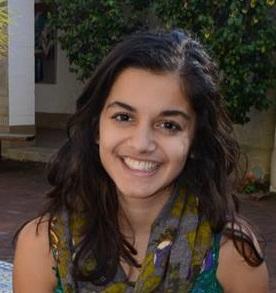
Tulika Singh is a PhD Candidate at the Duke Human Vaccine Institute. She started her 4th year of PhD training in May isolated, at home, due to the COVID19 pandemic. Before laboratories were shut down, Tulika was working hard to develop a prophylactic intervention for Zika virus infection. Growing up with SARS, H1NI, and Ebola epidemics, Tulika said that she came to graduate school determined to develop vaccines that could contribute to eliminating emerging infections. But now, she is limited at home with training in virology, vaccinology, and epidemiology, and her research on addressing the previous outbreak has come to a grinding halt.
Tulika is also losing vital opportunities important to her career. She said finally, she had received a scholarship to attend a conference in Peru where she would meet several leaders in the field, and importantly, future employers. That was cancelled due to restrictions in place by the COVID-19 pandemic. She also received an award to train directly with collaborators in Singapore. This too has been indefinitely postponed due to COVID-19. After years of hard work on her project, Tulika received a Basic and Translational Science award for her scientific poster from the Duke University School of Medicine Department of Pediatrics to publicly present her research and build momentum on years of efforts. That opportunity too is now gone.
In December, Tulika submitted her first NIH grant application, and she now needs to resubmit with more preliminary data in August. This is a vital cornerstone for success in academic research careers, but with labs closed for the last few months and now only open on a limited basis, the success of Tulika’s grant application is now threatened. She is faced with resubmitting an application without needed data to be successful.
Tulika is missing vital opportunities important to her career path and her research. She noted, “As I live through a period of economic, social, and political upheaval all due to one virus, I am saddened to note that scientific data and tools do not exist for preventing and controlling such pandemics. I wonder what role I will have in the next one. Though as I work from home, the finish line of my PhD drifts farther into the future and my professional network dwindles with social distancing, hampering my potential to secure a job after my training.”
How can Congress help?
PhD candidates like Tulika are the future scientists we need to ensure the U.S. remains on the cutting edge of biomedical research and to make advances in treatments for some of our most devastating diseases. There are bipartisan efforts in Congress to help mitigate the enormous disruptions to federally supported research and to support the nation’s scientific research workforce by providing at least $26 billion in emergency research relief funding. Learn more here.